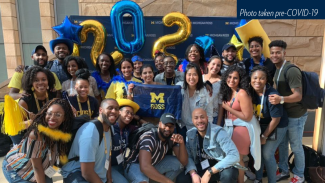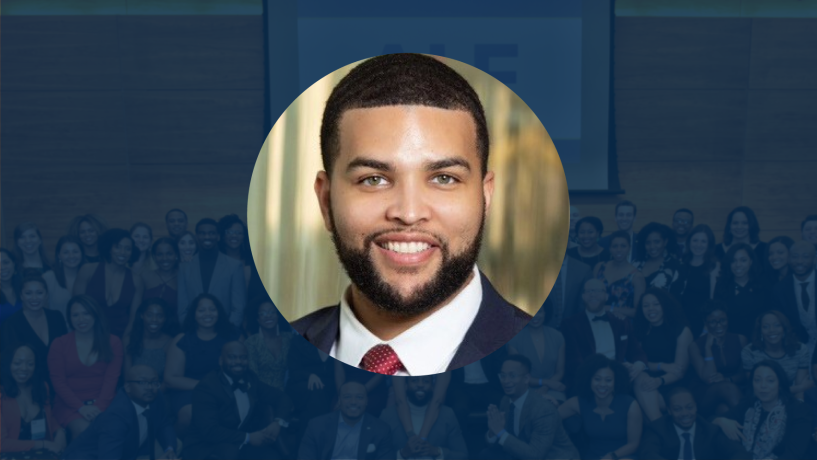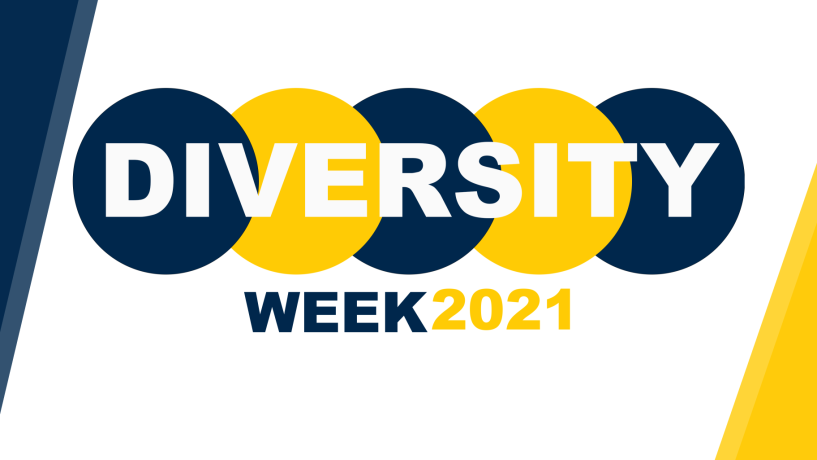Catching Up With the Last Nine Full-Time MBA Student Body Presidents and Michigan Ross Consortium Members

The last nine Full-Time MBA student body presidents at the Ross School of Business have been members of the Consortium for Graduate Study in Management — an organization dedicated to enhancing diversity and inclusion in global business education and leadership.
For nearly 40 years, Michigan Ross has been a member of the Consortium and has the largest Consortium alumni network of any business school.
Over 12 Full-Time MBA student body presidents have been Consortium members, and after being impactful leaders at Michigan Ross, they have gone on to successful careers after graduation. That includes the incoming and outgoing MBA Council Presidents, Jen Nwuli, MBA ‘21, and Whitney Pollard, MBA ‘22. Besides serving as student body presidents, 89% of Consortium members in the Full-Time MBA Program hold leadership positions in student organizations.
In the Q&A below, Michigan Ross Consortium alumni share insights they learned from their term as student body president and how the experience shaped their career. They also provide advice for current and prospective students.
Those alumni are: Daryl Brown, MBA ‘18, Regional Sales Manager, LinkedIn; Damian Chatman, MBA ‘14, Senior Brand Manager, PepsiCo; Naja Edwards, MBA/MSE ’20, Associate, McKinsey & Co.; Darryl Leach, MBA ‘03, Director of Corporate Strategy, Zeus Industrial Products; Al Leandre, MBA ‘02: CEO, Vyalex Management Solutions, Inc.; Tony Rice II, MBA/MEd ‘15, CEO, Kashay Sanders, MBA ‘19, HR Business Partner, Microsoft; Archer Street; Joe Tate, MBA/MS ‘17, State Representative, Michigan's 2nd House District; Jerry Won, MBA ‘17, founder & CEO, Just Like Media.
Why did you decide to run for Student Government Association president, and what role did your Consortium family play in your run?
Edwards: During orientation (during CGSM session actually), I wrote down that I wanted to develop my leadership skills while in business school and the way to do that was to "take on leadership positions that scare me." CGSM helped convince me that I could actually make a difference in the role and affirm that I had a vision worth pursuing.
Chatman: I decided to run for SGA president for a couple of reasons. First, I care about people and I wanted to play a role in making Ross a better place for current and future students. Second, I believe representation matters.
Tate: To support my classmates. My CGSM family was critical in my run.
What’s your most memorable moment as Michigan Ross student body president?
Sanders: I have to say the Alfred L. Edwards Conference. ALE is so interesting because it's almost like the forum for the "goodbye" speech of the current president. The student body president before me gave a resounding speech at ALE, and used it as a moment to rally the community around supporting me stepping into the role. I then used the platform to reflect on my own musings around purpose, and to recognize my successor. ALE was where I felt most tapped into the beauty of the CGSM legacy of holding the SGA office and overwhelmed by the incredible way the CGSM community celebrates each other's leadership.
Won: There are two: The Black Lives Matter and #OneRoss. We had a schoolwide showing of support from students, faculty, staff, and community to show the world that we were united in our support for Black Lives Matter and against the Muslim ban.
Leach: There were multiple moments, but I remember the executive team more than anything. We had as diverse a group of leaders on that team as I could have hoped for, with male/female, domestic/international, Black/White/Asian/Latin/Indian, LGBTQ, and undergrad/graduate students. The most memorable experience was working with, and learning from, them.
How did serving as president help you in your career?
Brown: I learned the importance of empowering others to do their best work, how to lead without formal authority, and how to create a shared vision.
Sanders: The experience was a unique window into something I will experience throughout my career: leading leaders. Everyone on the council was incredibly smart, creative, and hardworking. I had the task of trying to align our visions and figuring out how to catalyze each member's individual efforts, while being sensitive to each member's autonomy and making it clear I was there to support, not dictate actions. Understanding the delicate dance of being charged with clearing barriers for, and empowering, incredibly capable people is a lesson I know will pay off in my career for years to come.
Leandre: I arrived at Ross knowing that I can lead subordinates, but after my experience as student body president, I learned how to lead peers and colleagues. This was crucial for my future success where I had to lead people who were experts in their field.
What do you like best about being a Michigan Ross Consortium alum?
Edwards: The ability to help current Ross CGSM students navigate career moves and perspective Ross CGSM students decide what B-school is right for them.
Tate: Being able to communicate a shared experience with others.
Sanders: The opportunity to build on my friendships with fellow Rossers. I feel Ross attracts people who are down-to-Earth, genuine, and thoughtful, and I get to experience that more fully now that we are free from the stress of academics, recruiting, and the 6,000 clubs we were all in. At Ross, I got to sow seeds of friendship, but now I get to see those friendships blossom and grow into relationships that will be meaningful to me for the rest of my life.
What advice would you give to current and prospective Michigan Ross students?
Won: Focus on you. Don't worry about FOMO (fear of missing out) or other folks' expectations.
Leach: One person, with one skillset, will never succeed on their own in the business world, and the team-based approach that Ross has long used as a primary teaching method recognizes this. My advice is to take advantage of the learning that takes place within your working groups, both in school and on the job. Learn new ways to problem-solve, focus on the soft skills like communication, and find a way to give back.
My advice is: 1. You're going to meet some amazing students at Ross, who are doing amazing things. Do not constantly compare yourself to your classmates and do not get distracted from your goals. Stay focused on your goals and the reason you decided to go to Ross. 2. Remember to enjoy it. There will be a lot of stress with class, recruiting clubs, etc., but these two years will fly by and some of the best of your life. Take time to appreciate the success and stage you are at.










